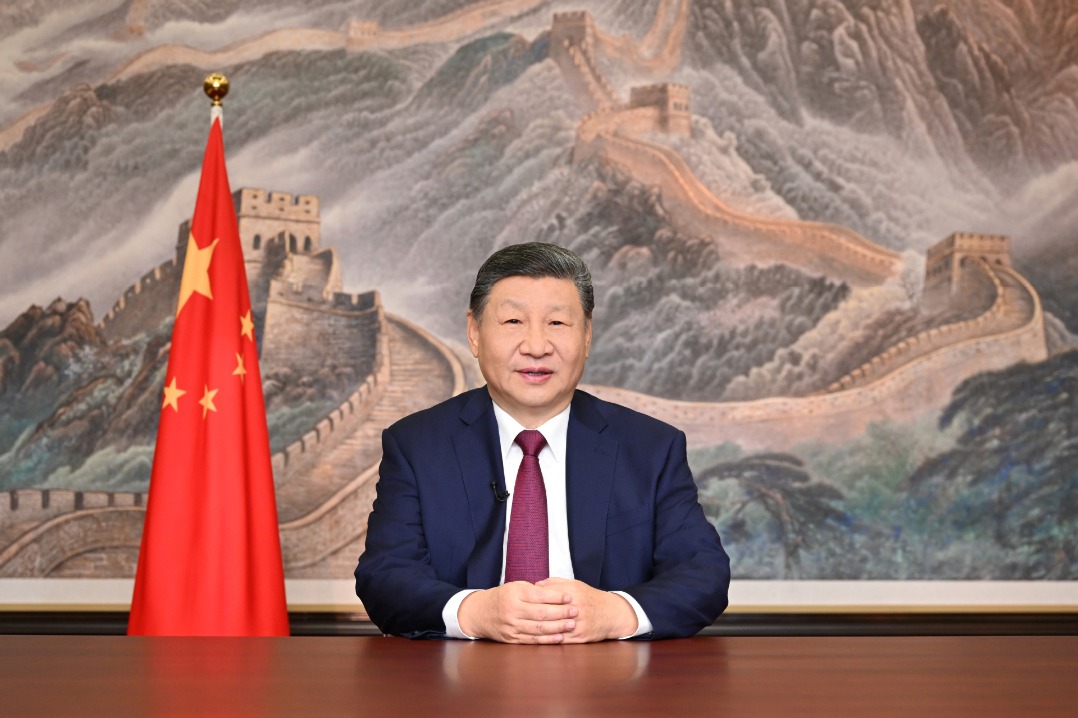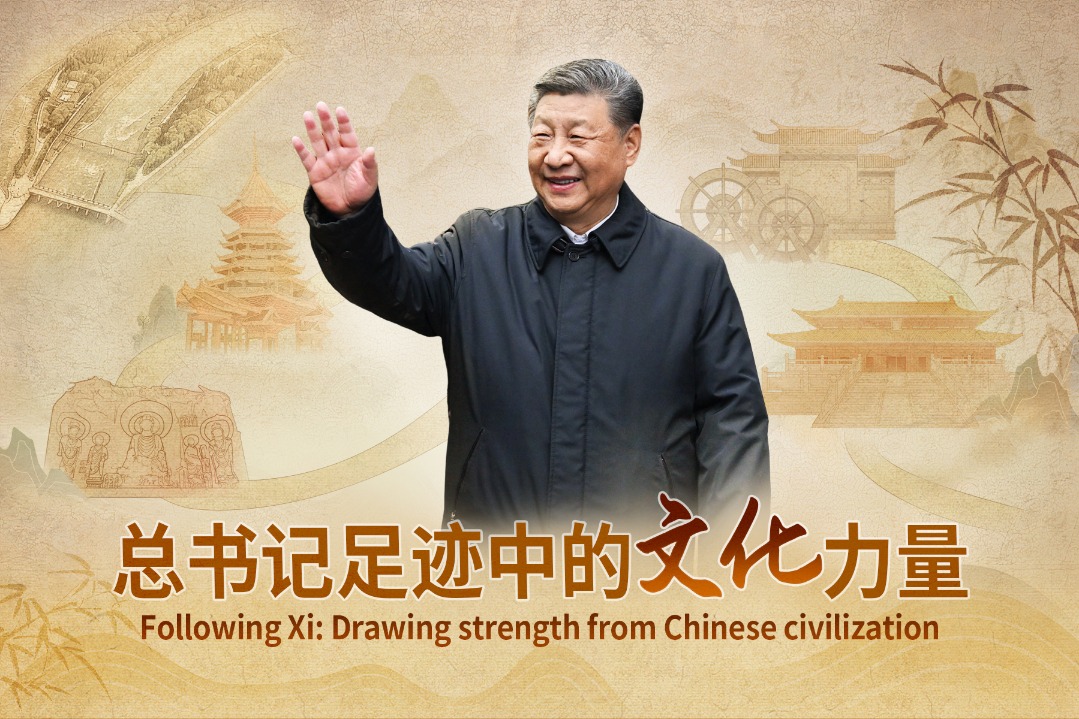Sinomach on lookout for fertile soil

| Tractors produced by China National Machinery Industry Corp roll off the assembly line in Luoyang, Henan province. Wang Song / Xinhua |
Overseas high-tech companies lure China's largest machinery maker
Xu Niansha submitted a simple but highly focused proposal in March as a new member of the 12th National Committee of the Chinese People's Political Consultative Conference, the nation's top political advisory body.
He said the central government should help state-owned enterprises buy high technology from abroad.
Over the past two years, Xu, vice-chairman of China National Machinery Industry Corp (Sinomach), has traveled abroad more often - not for leisure or to inspect contract engineering projects but to seek possible energy and high-tech investment deals.
"We are looking especially at European countries, like Germany, France and Italy. In the past, our counterparts in these countries were unwilling to work with us, but now things are different while the European Union debt crisis continues, because some cannot even survive," he says.
With many peers in developed countries on the brink of bankruptcy and struggling to raise capital, Sinomach, China's largest machinery maker, is diversifying its business and looking at companies in the high-tech sector, in particular, in an attempt to improve technology and enhance its industrial competitiveness in the global market.
"We expect to add investment abroad in industrial manufacturing and energy, while we continue to strengthen our presence as a major external engineering contract service provider worldwide," says Xu.
"We are looking at some foreign companies in the machine tools and equipment manufacturing industries and we are always prepared to spend on deals that we want."
Sinomach has projects in 75 countries and regions, including power stations in Africa, rail projects in Argentina and thermal power stations in Indonesia. In Africa alone it was involved in more than 20 countries by the end of 2011.
Besides engineering contracts and design, its business stretches to equipment manufacturing, research and development, and foreign trade.
During the 11th Five-Year Plan (2006-10), Sinomach's sales from contract engineering jumped by as much as 200 percent.
Against the backdrop of Chinese companies flexing their muscles in going abroad since the financial crisis, Sinomach is quickening its step.
"We are a newcomer as an investor", but the company is highly passionate in investing abroad, Xu says.
In 2011, Sinomach bought the agricultural machinery parts maker McCormick France SAS in a deal worth 8 million euros ($11.19 million) in an attempt to strengthen its dominant position in the domestic high-end tractor market.
Last year, China CAMC Engineering Co Ltd, a subsidiary of Sinomach, took a 60 percent stake in Procon Holdings (Alberta) Inc, also a mining contracting and mining service provider, for 737 million yuan ($117 million), which helped Sinomach enter the North American engineering market.
Since the global financial crisis, China's outbound direct investment has been rising, despite a drop in foreign direct investment worldwide, and in 2011 the country became the fifth largest investing nation worldwide in terms of volume.
However, China's global strategy started with bids for contract engineering projects abroad a few decades ago by a slew of state-owned enterprises, led by Sinomach, which built up infrastructure such as roads, bridges, power stations, schools and hospitals.
While Chinese companies became more involved in overseas projects and their names became increasingly recognized worldwide, they also started investment projects in recent years, either setting up factories or through mergers and acquisitions.
Last year, China's ODI in the non-financial sector grew 28.6 percent year-on-year to $77.2 billion, says the Ministry of Commerce.
Zheng Chao, former commercial counselor at the Department of Outward Investment and Economic Cooperation at the Ministry of Commerce, earlier told China Daily that as Chinese firms became more capable, the desire to globalize grew, and competition in the contracting becomes fiercer, Chinese contractors would diversify from merely working on contract engineering projects to expanding investment deals and seeking engineering contract project management programs.
More investment will help domestic contractors get more engineering deals abroad, says Zheng.
By the end of last year, China's cumulative signed external contract engineering projects were valued at $998 billion, the ministry says. In 2012, the country's newly signed contracts grew 10 percent year-on-year to $156.5 billion.
Ren Hongpeng, vice-president of China Road and Bridge Corp, says the company's long-term strategy is to shift into investment, and such a transformation is unavoidable, especially for Chinese contractors, although contracting for engineering projects is still its traditional business.
Xu from Sinomach says the company mainly targets energy and infrastructure projects in developing countries, led by Southeast Asian nations, and manufacturing deals in developed markets through mergers and acquisitions.
Last year, Sinomach's sales reached 221.4 billion yuan, and profits were 8.5 billion yuan, Xu says.
The company aims for revenue of 500-600 billion yuan by the end of 2020, and profits of 25-30 billion yuan.
Xu says the company has an ambitious plan to invest abroad, without elaborating on the budget, and he attributes this to its aspirations to improve its technology and research capabilities and to expand overseas.
"China still lags far behind its Western counterpasrts in many high-tech manufacturing industries, but we can learn from them, especially the European countries including Germany and France," he says.
As part of its 12th Five-Year Plan (2011-15), the central government has pledged to add investment to innovation and industrial upgrading. While China became the world's largest exporter and manufacturer in 2009, it is challenged by industrial overcapacity and shrinking global demand for its goods.
But developed countries and regions, including the United States and the European Union, have placed restrictions on shipments of a wide range of high-tech goods to China.
"Partnering with companies owning advanced technology in the West provides us with a shortcut and easier access to improve technology," Xu says.
"We have the capital they need, and also, as the Chinese market is a priority for many of our Western counterparts, partnerships can help them expand market share in China."
The Government Work Report of 2011 said that China will encourage enterprises of all types to expand their global presence, facilitate brand marketing and enhance technological competitiveness through mergers and acquisitions in manufacturing, services, infrastructure and energy.
The report this year also says China will adopt a more proactive opening-up policy and improve relevant rules and regulations to provide Chinese firms looking to go abroad with a more favorable environment. This is a good sign for companies like Sinomach.
During the past three to four years, Chinese enterprises have become increasingly aggressive in expanding to the West, European countries in particular.
In 2011, China's ODI in the European Union surged by 94.1 percent to $4.28 billion.
Shi Mingde, Chinese ambassador to Germany, says China's ODI in Germany doubled last year, accounting for 50 percent of its ODI in Europe.
The momentum will be sustained as Chinese companies expand to obtain technology, expand their sales networks and enhance branding, he says.
"But Germany and German companies have many concerns, complaining that China's investment deals hurt local employment, although such concerns don't make sense," Shi says.
Sinomach says it also encounters distrust and investment barriers overseas. "The problem is that Western countries are more and more wary of China's growing investment and have set restrictions in various forms. They always doubt China's intention. They ask China to create more jobs, but they are unwilling to transfer technology to us," Xu says.
He cited the deal with McCormick France SAS in 2011. Sinomach promised to add another 400 jobs to the local community by the end of 2015, besides agreeing not to lay off any foreign staff after the deal was completed.
"But, unfortunately, technology transfer is still an unresolved problem," Xu says.
Sinomach says its projects in Africa alone helped generate as many as 13,000 jobs directly and indirectly in communities there.
"Wherever we have been abroad, we actively get involved in the local community, committed to taking local social responsibility and addressing concerns over jobs and the environment," Xu says.
dingqingfen@chinadaily.com.cn
(China Daily 05/03/2013 page15)
Today's Top News
- Full text: Chinese President Xi Jinping's 2026 New Year message
- Poll findings indicate Taiwan people's 'strong dissatisfaction' with DPP authorities
- Xi emphasizes strong start for 15th Five-Year Plan period
- PLA drills a stern warning to 'Taiwan independence' separatist forces, external interference: spokesperson
- Xi, Putin exchange New Year greetings
- ROK leader's visit to help boost bilateral ties































